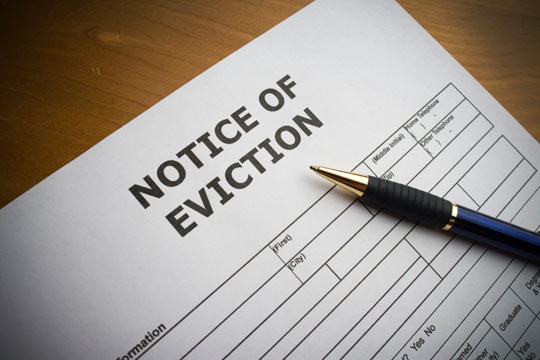Can I evict my tenant or not during Covid-19, and how will I ever recover back owed rent? For Florida Landlords
By Guy Thomas Strempack, Esq. of the law firm- Strempack Law, with his office in Fort Lauderdale, Florida.
The coronavirus (COVID-19) pandemic thrust our community into an unknown territory. Landlords and tenants find themselves asking how the laws and orders passed Federally and in the State of Florida apply to them. Clearly, landlords still have to maintain their properties, pay mortgages and other expenses, while seeing less rents hitting their banks than before the pandemic. Many tenants have lost their jobs/incomes, and government has tried to step in and protect the community in order to keep a roof over their heads by implementing stimulus aid, unemployment benefits and other forms of assistance. Landlords may have access to stimulus money as well, but many have found that to be a difficult puzzle to solve. It is indeed a delicate and worrisome balancing act for all parties.
The federal stimulus package in response to COVID-19 (The CARES Act) was passed on March 27. The bill includes a moratorium on “covered dwellings” as described by the act. Here is a brief summary on what properties are affected under this bill:
https://www.nhlp.org/wp-content/uploads/2020.03.27-NHLP-CARES-Act-Eviction-Moratorium-Summary.pdf
https://myhome.freddiemac.com/renting/lookup.html
This moratorium is due to expire on July 25th, 2020, unless extended.
On April 2nd, Florida’s Governor, Ron Desantis, signed an order that suspend and toll any statute providing for an eviction cause of action under Florida law as it relates to non-payment of rent by residential tenants due to the COVID-19 emergency for initially 45 days. You can find a copy of the order here:
https://www.flgov.com/wp-content/uploads/orders/2020/EO_20-94.pdf
That order was extended and is set to expire on July 1, 2020.
On June 29th, Governor Ron DeSantis announced a $250 million dollar COVID-19 relief package intended for housing. $120 million will go to affordable housing tenants and another $120 million is pledged for rental and homeowners to cover costs. Details are pending, but this can surely help both tenants and landlords.
On June 30th at 8 pm, Gov. Ron DeSantis extended the moratorium on evictions and foreclosures until Aug. 1 because of the coronavirus pandemic once again.
As noted, The CARES moratorium only applies to “covered dwellings”. A landlord needs to be aware of what he can or cannot do under this Act. In this article, we will focus more on the Florida landlords and the order issued by Governor Desantis, which was extended twice to date. The Florida order only SUSPENDS the rent owed by the tenant. The tenant will still owe all past due rent once the moratorium is lifted. However, all landlords need to understand the legal requirements of this order. This order does not suspend evictions that are for other matters not related to the payment of rent. Therefore, a landlord needs to understand that if there are other lese violations, they may be permitted to file evictions now. Unfortunately, there has been misinformation circulating online and in the media about what the current crisis means for those who rent properties from landlords and what they will be obligated to pay when the moratoriums expire. Many tenants are under the impression that they will not have to pay the back rent owed and that they will live at no cost for many months ahead.
When the Courts start processing evictions again, we can expect delays in landlords obtaining final judgements and regaining possession to their properties. There may be hearings, mediations and contested motions filed by the tenants, their attorneys or by legal aid services. There are only so many clerks in the court, and only so many Judges to handle the extreme workload they will face… the delays are imminent. A landlord should not expect these cases to process like they did pre-Covid-19. It just will not happen.
Maybe landlords are asking: how will I be able to get my money and who will I be able to pay my bills?
Structuring proper legal settlement/stipulation agreements can give a landlord the opportunity to reclaim lost rent and give its tenants the opportunity to catch up by setting agreed upon time future dates for payments to be made. They can also provide a fast mechanism to get a final judgment if those payment dates are not met. Stipulation agreements can give a landlord a vehicle to remove the uncertainty that they have been experiencing for months. They can be used to set a legal and binding agreement to avoid additional hearings and expenses as well.
For example, the agreement can require the tenant to pay an agreed amount up-front at signing, and allow the tenant to pay an extra amount each month above and beyond their rent payment until they repay all monies owed. With folks returning to work, many tenants may have the ability to repay their debts in a reasonable amount of time and allow the landlord to maintain a constant revenue stream under the settlement agreement. A landlord must make that decision based on his or her own position. For the landlord who finds themselves in a difficult financial position, the alternative of spending money on legal costs and having vacancies, may not be the best option at this time. It is logical to assume that new tenants will likely have difficulty coming up with first, last and a security deposit to move in. A carefully drafted settlement agreement may be the answer that many landlords will need in the coming months ahead.

















 Accessibility
Accessibility